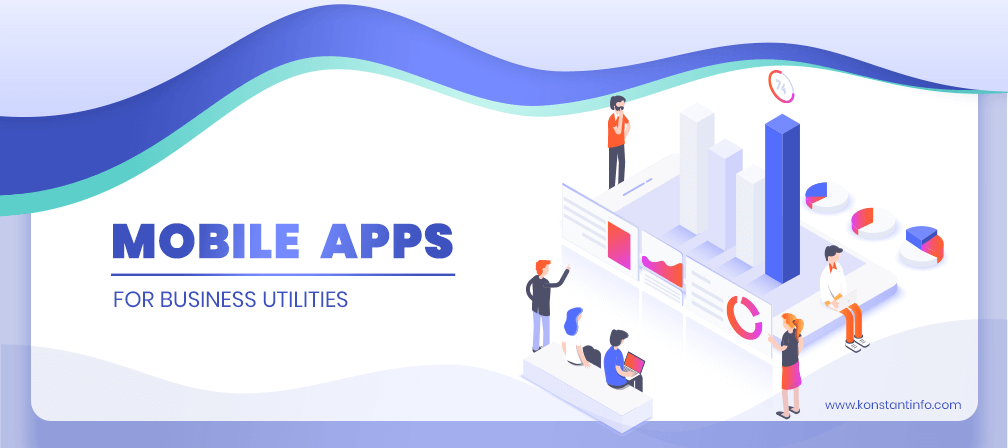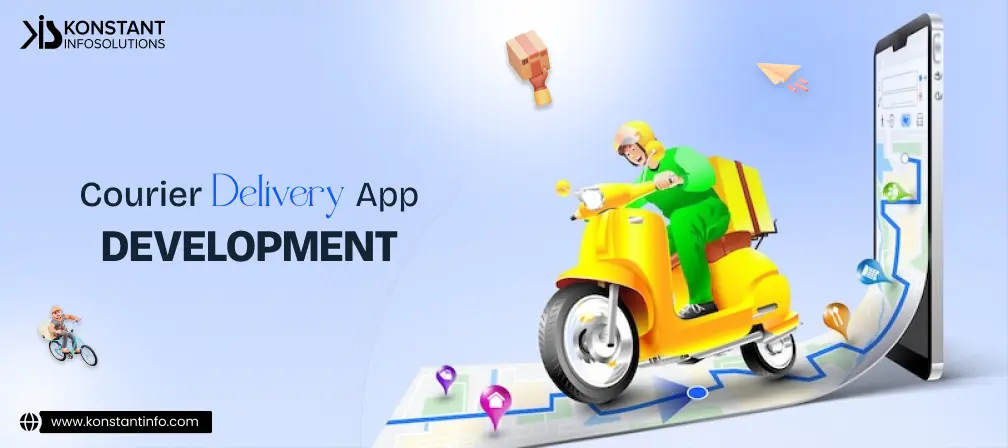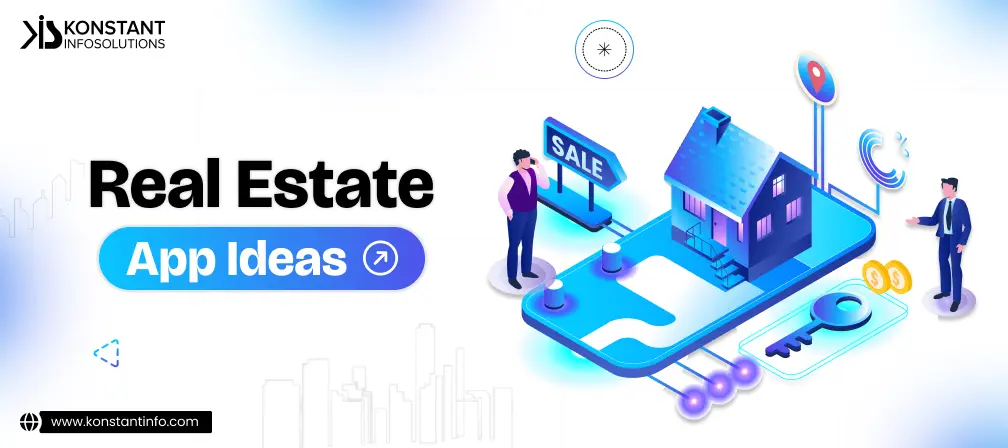
Mobile apps today are relevant and useful to almost every facet of work. Take any industry vertical, business niche or product type, they are already involved in operations sourced by mobile technology or mobile apps to connect and serve their customers with.
With the ever-expanding functional scope and significant resource penetration the mobile technology offers, it is proving highly valuable to the field of business utility. And by the virtue of its presence and reaching capabilities in today’s action-intensive business settings, you can find it contributing to different backend and customer-facing functions of businesses phenomenally.
The term business utility refers to the supporting factors that allow a business to act and function offering it some sort of utility. Like a communication system that allows a customer to chat with a support executive is a kind of business utility.
It is not about businesses that deal with creating or providing certain utilities. As we look at it from the operational perspective, every business has to perform, use or connect with different utilities in some form or the other. This includes optimum utilization of resources and seamless flow of information to help businesses perform functions and execute tasks effectively.
As per a report, many companies across the US appoint dedicated staff to perform utility tasks and others outsource it to service providers. If we look into the numbers, currently utilities employ about 1.2 million people. By 2020, this is expected to grow to 2.4 million employees.
As we see mobile technology ticking a notch high in its traits and references with every day passing, there’s a lot it can commit to in helping businesses enhance their scales of operations, work with optimized processes and create an interface to connect and communicate better with different resource facets.
Though businesses already have a system and some of them even have legacy software to utilize information and resources to help them execute tasks but they have their own limitations.
And as we are increasingly committing to globalized arrangements of trade and diverse and complicated work structures, there’s a need to treat and empower the utility line-up with advanced mobility and allied technologies.
Further, as the competition continues to grow and new utilities keep coming in more sophisticated forms, it makes sense to adapt mobility for business utility without looking further.
As more and more businesses are operating in dynamic facilities connecting with remote resources located globally, the need for mobile enterprise utility apps is getting higher. Even if the companies are confined to a particular location they want to command workforce mobility and economies of operation to accomplish standardized practices and achieve better ROIs. And with the growing competition and evolving user preferences, it becomes necessary for them to grab the latest technology at earliest to help them establish, process and execute utility tasks for their business.
Owing to which, businesses have started getting mobile apps developed to help them with their utility practices. Also, most of them look to procure the facility before others do, to grab early adoption benefits and take the leading edge in their domain up early.
Custom mobile app utility tools are allowing them to seamlessly connect and mobilize their workforce while allowing them to perform different utilities across several functional areas and departmental frameworks – specifically referring to unique organization needs and user preferences.
As per a report, those who have adopted business utility apps have seen a 20% hike in productivity levels. These tools have also helped them comply 25% better with service level agreement policy, while resourcefully driving and supporting different pivotal and peripheral functions that are performed within an organization. The response time, coordination and quality of performance of these businesses have become 15% more efficient, which have helped them further optimize their processing time and operational costwith great margins.
Improvement in workforce management – With utility mobile apps workforce is always connected and updated with theirtasks, information and resources. They are able to take quick decisions and execute tasks more effectively within a close-knitted work ecosystem.
Cost-efficiency – Traditional utility processes and execution approaches largely depend on legacy systems and measures. These are highly resource-draining and cost-intensive and quite limited in terms of access and scope. Mobile apps allow users to effortlessly collect real-time data, seamlessly communicate and execute tasks. Which reduces the turn-around-time and increases work efficiency and quality, hence proving highly cost-efficient for the organization.
Outmoded hardware – The companies that are still using the worn-out hardware systems are looking to go past sluggish and restricted ways to seek utility. They want more liberal and improved systems to help them manage their tasks and functions and custom mobile apps, that know their needs and purpose well, are the best thing they can have here.
Marketing and Sales – Mobile apps have come out to serve businesses with great ability to interface with customers, effectively committing to various marketing and sales jobs like printing marketing material, logging in sales, updating collaterals, tracking delivery, allocating sales tasks, arranging calls and maintaining sales inventory.
Design and Planning – With utility apps architects and route planners get to access advanced geo-tagging and mapping features to help them make design and planning decisions and create accurate infrastructure diagrams and present them more ingeniously and interactively.
Managing channels – When you are connected with multiple partners and suppliers you need to ensure there is a proper flow of information and resources. Utility mobile apps allow you to effectively integrate and process data on-the-move and hence gives you great leverage to manage channels.
Safety and health considerations – In any company or department, safety and health are the foremost priority and utility mobile apps help you commit to that with great ability. As you get rid of paper work and get to do reporting more accurately and interactively using resources like time stamps, progress tracking, location-based checklists etc.
Administration – Administration is the core function of any organization. It includes a vast array of tasks and activities related with finance & accounting, human resource, inventory, communications etc. With mobile apps you get to deal with all these functional areas with great efficacy and resourcefulness, adapting to an advanced and mobilized way of administrating things.
Customer service improvements – Mobile apps can allow customers to access real-time information on services and other company updates. It can also allow them to access different offerings remotely through the app which saves a lot of time and efforts on both sides. With this they are also able to make more informed and guided decisions.
Enhances communication infrastructure – With the help of consumer-facing mobile apps companies can streamline their user communication model and have a better command over processes to deal with customer requests and queries. This further helps in shrinking the communication TAT and aids to better customer experience.
Mobile payment gateway – People are getting used to digital payments. They prefer to pay their bills and purchase stuff through online platforms. And this trend in growing day by day. This increases the chance of businesses with payment utility on their mobile app to be their favorites.
With growing dependency on technologies, stiffening government regulations, globalized commercial framework, fast changing consumer choices and need for fast communication, the need for custom business utility apps has grown exponentially. With PDAs all over and easy access to internet and allied technologies, it is becoming easy for users to keep close with online utility services through mobile apps. Besides, the ever-advanced features and traits that come up with utility apps are making the trend grow further bigger and making it a necessity for businesses to adopt and apply it at their earliest.
Also read: How Much Does It Cost to Create an App?
Konstant Infosolutions is a known name in business utility app development and has provided various clients with customized solutions to help them integrate inbound and outbound utilities with their business value propositions. Connect with us to get help with utility apps development for your business.



Vipin Jain is the Co-Founder and CEO at Konstant Infosolutions and is in charge of marketing, project management, administration and R&D at the company. With his marketing background, Vipin Jain has developed and honed the company’s vision, corporate structure & initiatives and its goals, and brought the company into the current era of success.
Or send us an email at: [email protected]